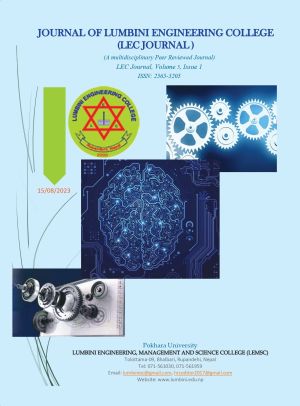Inclusive Democracy and Local Governance of Rural Education and its Challenges
DOI:
https://doi.org/10.3126/lecj.v5i1.60119Keywords:
Education, Rural Development, Inclusive Democracy, Women’s EducationAbstract
Diverse races, faiths, castes, creeds, and languages characterize Nepali society. The nation is divided into far-flung, isolated enclaves and compartments by the terrain of the hills, mountains, and plains with rivers and streams. Such diversity poses difficulties for economic progress, which has a direct impact on education, particularly for women. In this situation, both men and women can contribute to Nepal's development efforts. Even while women are more capable and essential to changing society in many ways, there is still a lack of security regarding work chances in society. Women's participation in Nepal is a difficult task not just in terms of education but also in terms of the labor market, public policy, and levels of decision-making. It seems that significant efforts should be taken to ensure women's participation in education in order to improve the growth of the nation.
Downloads
Downloads
Published
How to Cite
Issue
Section
License

This work is licensed under a Creative Commons Attribution-NonCommercial 4.0 International License.
This license allows reusers to distribute, remix, adapt, and build upon the material in any medium or format for non-commercial purposes only, and only so long as attribution is given to the creator.




